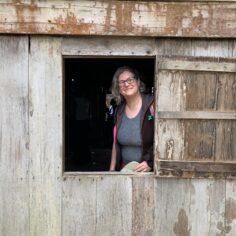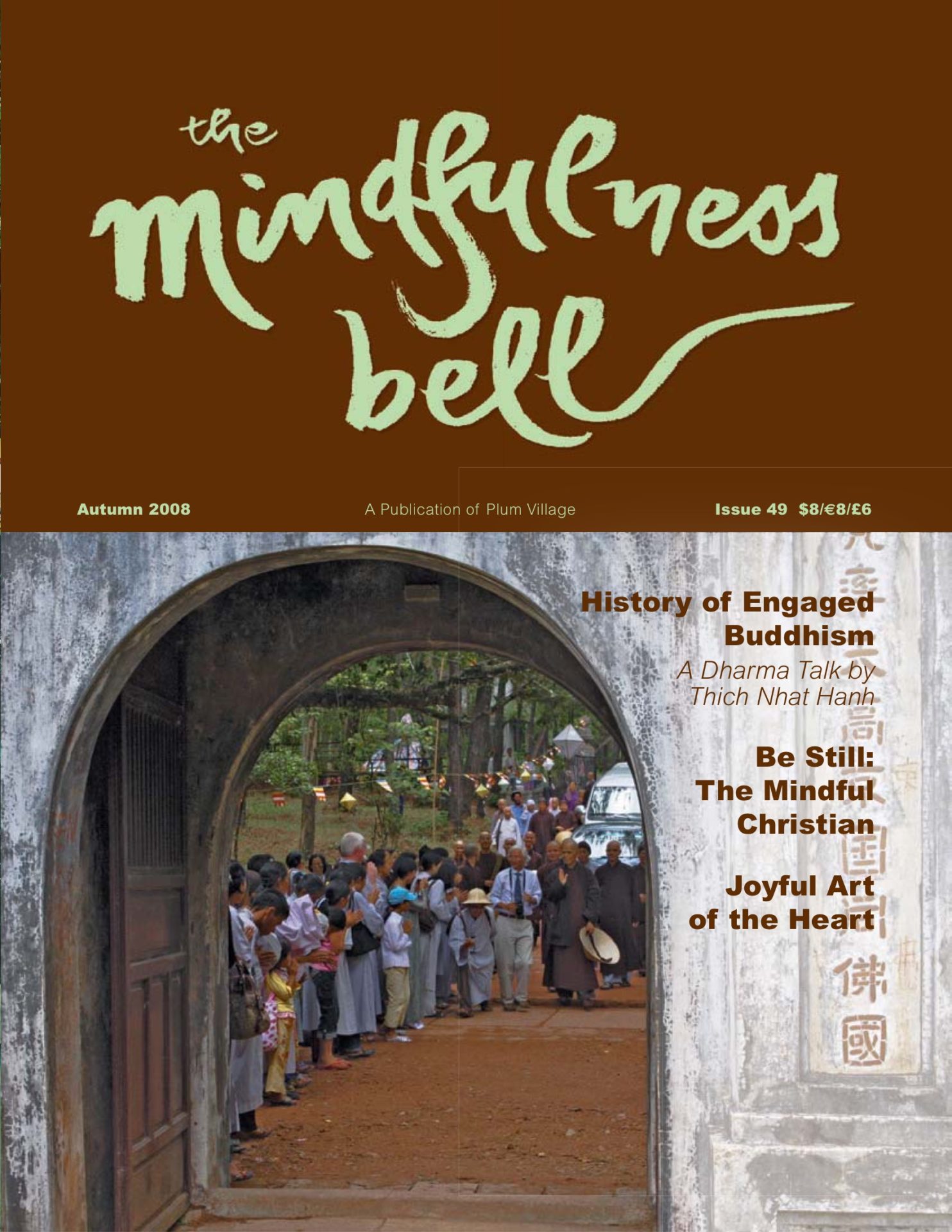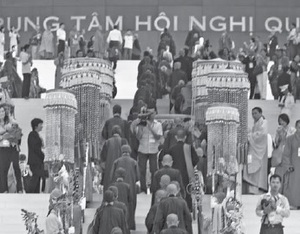
National Convention Center, Hanoi, Vietnam May 13-17, 2008
Vietnam hosted the Fifth United Nations Day of Vesak Celebrations 2008 (UNDV 2008) entitled “Buddhist Contributions to Building a Just, Democratic and Civilized Society,” with great joy. Over six hundred Buddhist delegations consisting of about five thousand Buddhist monastics and laypeople from seventy-four countries came to find, in the spirit of compassion and wisdom, the solutions to pressing world issues.

National Convention Center, Hanoi, Vietnam May 13-17, 2008
Vietnam hosted the Fifth United Nations Day of Vesak Celebrations 2008 (UNDV 2008) entitled “Buddhist Contributions to Building a Just, Democratic and Civilized Society,” with great joy. Over six hundred Buddhist delegations consisting of about five thousand Buddhist monastics and laypeople from seventy-four countries came to find, in the spirit of compassion and wisdom, the solutions to pressing world issues.
Dressed in many-colored Buddhist temple robes — brown, gray, orange, red, and yellow — the delegates who assembled to open the three-day celebration represented many traditions and lineages. They offered a moment of silent prayer for victims of recent natural disasters in Myanmar and China, followed by an opening address by Prof. Le Manh That, Vice President of Vietnam Buddhist University and Chairman of the International Organizing Committee for UNDV 2008. His Holiness Thich Pho Tue, Supreme Patriarch of Vietnam Buddhist Sangha offered a congratulatory message, followed by a welcoming address by Mr. Nguyen Minh Triet, President of the Socialist Republic of Vietnam.
Keynote speaker Ven. Mathieu Ricard stressed the importance of first transforming ourselves if we want a wiser and more compassionate society. He said that cultivating our mind is the best service we can do for society. Keynote speaker Most Ven. Prof. Dharmakosajarn shared that the goals of the UN are similar to the goals of Buddhism in the search to attain peace and security in the world and establish conditions of respect for international law and human rights.
The important keynote speaker was Zen master, Most Venerable Thich Nhat Hanh. He urged delegates to commit themselves to not only support building a just, democratic, and civilized society in theory, but also in practice. “We have to change ourselves before we can make the change happen in our society. Being peace is the foundation of making peace. Without transformation and healing we are not calm and compassionate enough to use loving speech and deep listening, and our efforts will not help change our society.”
Cultural Activities
Cultural highlights of the UNDV celebrations included a Buddhist art and photo exhibition, as well as special processions of lights and decorated floats. On May 14 a spectacular candle-lit procession started the evening performance, which included a Vietnamese fan dance, traditional drumming, and musical offerings. On the evening of May 15 a rich and moving theatrical performance on the life of Buddha was portrayed in Vietnamese opera style. Cultural activities were organized not only in Hanoi but also in fifty-five cities and provinces.
The final evening, after the closing ceremony, there was a candlelight vigil praying for World Peace with thousands of people. Sanghas throughout the nation of Vietnam and around the world were asked to join in a simultaneous prayer vigil.
Panel Workshops
The heart of the conference was seven workshops, each of them with three panels, one in the morning and two in the afternoon. Buddhists from around the world shared their practices, teachings, experiences and research on the topics related to the conference theme, followed by question-and-answer periods.
War, Conflict and Healing: A Buddhist Perspective
The international gathering investigated the causes of war, conflict and disharmony among different cultures, nations and religions, and tried through the light of Buddhist doctrines to find solutions. With twenty-two presenters, many coming themselves from recently war-torn areas like Israel and Palestine and Northern Ireland, they concluded that for society to be healthy the individual must be healthy. To do this, we should practice non-attachment to views. When we go into regions of conflict we see that suffering is experienced on all sides. But we have difficulty acknowledging that the suffering of “the other” is the same as our own. Buddha’s teachings help us recognize this. We need to look deeply into the roots of our own suffering and develop the capacity to also see the suffering of others. If we look deeply, hope is possible.
Social Justice
In the Social Justice Panel, presenters shared that the way to peace and justice lies in peaceful personal and collective action. We heard examples of the practice of mindfulness applied to the training of police officers and lawyers, as well as in mediating and resolving community disputes, and the negotiations between an international corporation and indigenous tribes.
In assuring social justice, we must acknowledge our interconnectedness. Buddhist ethics, grounded in this understanding of interconnectedness, play an important role in the development of a just society. On a personal level, the application of mindful, deep listening and peaceful, loving speech in a context of social action can support and promote the transformation of the society.
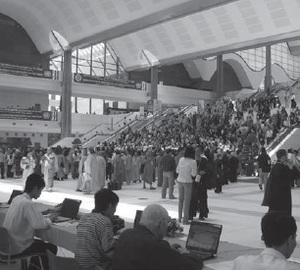
Engaged Buddhism & Development
This panel emphasized that development must not only be defined as economic growth and material prosperity but also as the growth of happiness and peace in society. Many societies that are so-called ‘developed’ have high rates of crime, depression, suicide, family breakdown, and deep unhappiness, brought about precisely by the materialism and drive to consume that is the mark of our current definition of ‘developed’ societies. Specific examples of efforts to engage in development work integrating the Dharma included a plea for support for the efforts of Sangha-building in Africa.
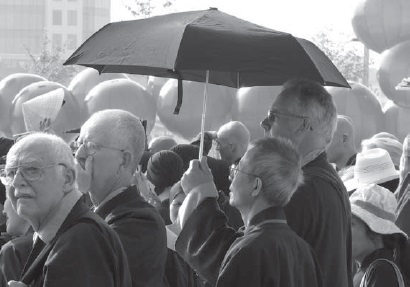
Care for Environment: Buddhist Response to Climate Change
The panel recommended that the Buddhist world prepare itself for climate change and promote more education about the issue. It also asked both lay people and monastics to set an example and that Earth Day be recognized and honored in the world.
Family Problems and the Buddhist Response
Many local Vietnamese delegates attended this panel. Everyone was very moved and inspired by the concrete, practical sharing of how to resolve conflicts, the importance of deep listening and loving speech, and the role of mindful breathing in creating deep transformation in ourselves, families, and society. The central message was the important role of the Five Precepts or Mindfulness Trainings in healing family problems and preventing them in the first place. The sharings were personal while remaining very relevant, and at times the audience was moved to tears. There was a real cross-cultural dialogue and experience of deepening understanding across many different barriers of language, culture, and generations.
Symposium on Buddhist Education: Continuity and Progress
The thirteen presenters at this workshop spoke of the important role that Buddhist teaching and practice can play at all levels of learning, from grade school to university, serving as a stabilizing and transformative force of wisdom for the individual and collective consciousness. The continued growth and maintenance of these centers of teaching is critical to the well-being of people within these societies as well as in relationships with other nations. There is a growing interest in Western countries to integrate Buddhist teachings into the very foundation of education in schools, from primary level to university programs.
Buddhism in the Digital Age: Electronic Cultural Atlas Initiative
The panel presentations discussed many ways that Buddhist texts, art, culture, artifacts and temples can be detected, preserved, and shared using various digital technologies. The panel subjects were divided into three general categories: digitalization and preservation of historical sites; preservation of texts through digital media; and the location and mapping (via technology such as Google Earth) of Buddhist sites.
Conclusion
We would like to thank all Venerables and delegates from ninety different countries for your participation at this Fifth UNDV conference.
You are invited to attend upcoming international Buddhist events including the 2nd World Buddhist Forum in August 2008, the Fifth World Buddhist Summit in Japan in November 2008, General Conference of the International Association of Buddhist Universities, Bangkok, Thailand, 2008, the activities of the World Fellowship of Buddhists (WFB) and Inner Trip Reiyukai International (ITRI), and especially we hope you will come join us for the Sixth World Buddhist Summit in Vietnam in 2010.
This report, edited here for length, was a collaborative effort of Dr. Manpreet Singh, Sr. Thong Niem, Sr. Chau Nghiem, Sr. Nhu Nghiem, Ven. Thich Nhat Tu, Avi Magidoff, Karen Hilsberg, Loan Phan, Sita Ramamurthy, Sally Tinker, Carmen Kuchera, Kate Ettinger, David Haskin and other lay practitioners who reported on the different workshops at the Vesak conference. Also see http://vesakday2008.com.
